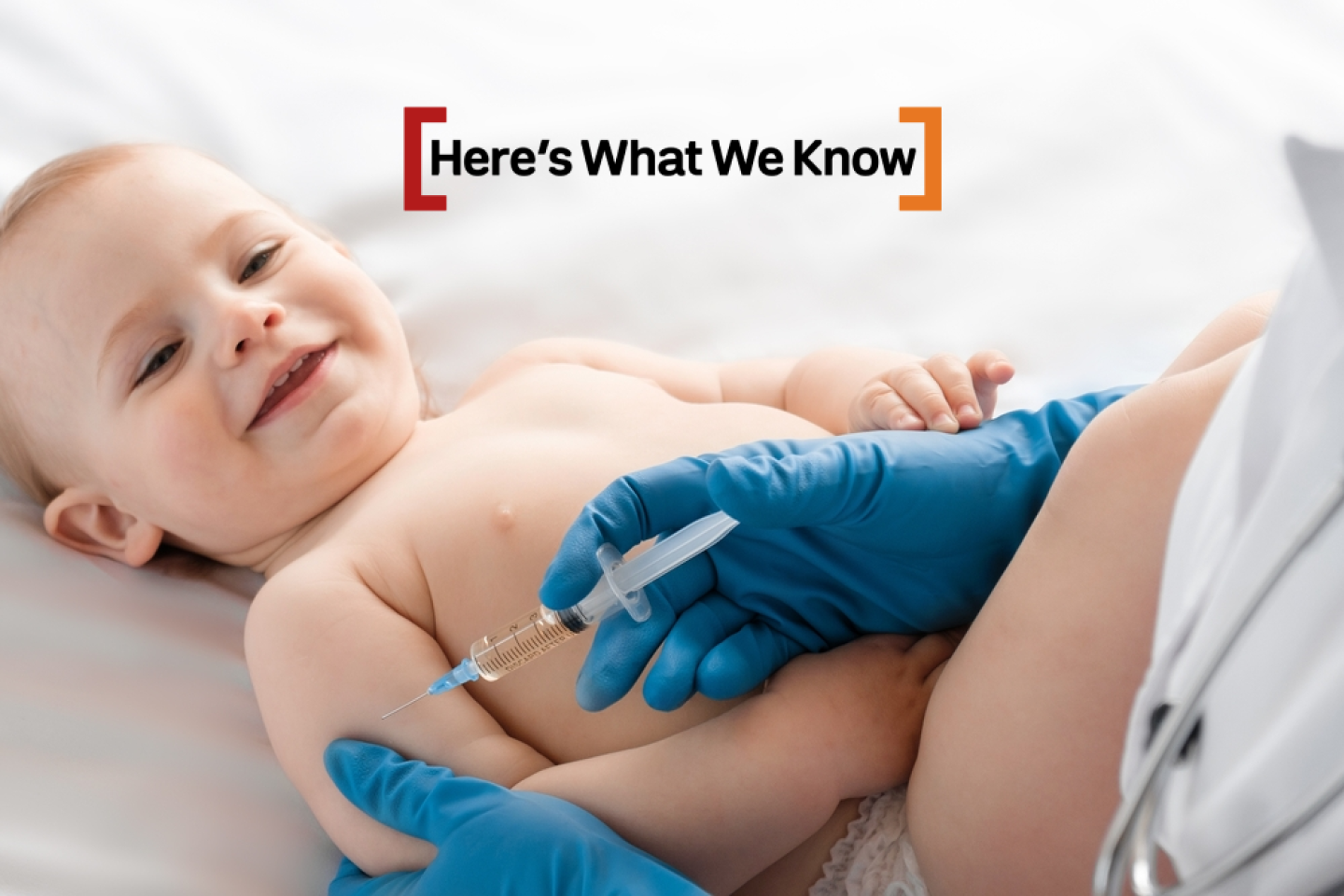
Hepatitis B (HBV) is a virus that infects the liver. It can lead to chronic liver disease and increase a person’s risk for developing liver cancer.
The virus is transmitted through infected blood or body fluids, including blood, semen, vaginal secretions and saliva, says Dr. Allison Gorman, an Assistant Professor of Clinical Pediatrics at Weill Cornell Medicine and Assistant Attending Pediatrician at Children’s Hospital of New York at NewYork-Presbyterian.
Babies can acquire hepatitis B during delivery if born to a person with a hepatitis B infection, she says.
While some adult transmission occurs through exposure to contaminated needles and sexual activity, HBV can also be acquired through sharing personal items, such as razors, toothbrushes or gum, with an infected person, or touching their fresh skin breaks, cuts, burns or blood.
In the United States, approximately a third of people who contract hepatitis B can’t identify the source of their infection. More than half of them are unaware of their infection status, and approximately 50 to 70 percent of people with acute hepatitis B are asymptomatic.
Like other vaccines, the HBV vaccine works by stimulating the immune system to recognize a specific protein on the hepatitis B virus. Once immunized, if a person is exposed to HBV, their immune system will be able to target the virus with antibodies to prevent infection.
“The vaccine is highly effective, with a protective antibody response achieved more than 90 percent of the time in adults and 95 percent in infants,” Dr. Gorman says, “plus the protection is long-term.”
She goes on to explain that receiving the hepatitis B vaccine as an infant can also prevent infection if exposed later in life. “Implementation of the HBV vaccine program has led to a dramatic decline in the prevalence the disease in children, and of chronic HBV in adults.”
Babies should receive a 3-dose hepatitis B vaccine series. The first dose is recommended shortly after birth. The additional doses are recommended at 1 to 2 months and 6 to 18 months, with most infants receiving the HBV shot along with their other childhood vaccines at 2 and 6 months.
“Studies have shown that babies who receive their first dose in the nursery are more likely to complete the full series and thus be fully protected as soon as possible,” says Dr. Gorman.
Yes, hepatitis B screening is standard during pregnancy, as this will help inform the management of the baby after delivery.
“To prevent the development of hepatitis B infection in the baby,” says Dr. Karen Acker, an Assistant Professor of Clinical Pediatrics at Weill Cornell Medicine and Assistant Attending Pediatrician at Children’s Hospital of New York at NewYork-Presbyterian, “we recommend that newborns receive a dose of the hepatitis B vaccine, along with a dose of HBV antibodies (called hepatitis B immune globulin, or HBIG).”
As with many liver diseases, the symptoms of viral hepatitis can be vague, such as fatigue, poor appetite, an upset stomach or yellowing of the eyes or skin. “You may be chronically infected and remain asymptomatic for years,” Dr. Acker says. “That’s why it’s so important for expectant mothers to get screened—and vaccinated.”
The HBV vaccine is extremely safe, and serious safety events are rare. More than a billion doses have been administered globally since the 1980s, and serious adverse events and allergic reactions have rarely been reported. The most common side effects are pain at the injection site in fewer than 10 percent of children, along with mild complaints of fatigue, headache and irritability in up to 20 percent of children. A low-grade fever occurs in up to 6 percent.
Despite the concern that infants and children are being exposed to excessive numbers of vaccine products, there is actually less antigen (the component in vaccines that stimulates our immune response) in current vaccines compared to older ones.
Dr. Acker reminds us that infants and children are constantly exposed to bacteria, viruses and other substances in the environment that constantly stimulate their immune system. As a result, “they’re well-equipped to respond to vaccines, which make up only a small portion of the total immune stimulation they’ll encounter.”
Although HBV is vaccine-preventable, it can become a lifelong illness if a patient is infected at a young age. “It’s usually not curable,” Dr. Acker says, “but the virus in adults can be controlled effectively with medication,” including several antiviral medications. As well, an interferon injection is an effective short-term treatment.
Find a pediatrician at Weill Cornell Medicine for your family's care.